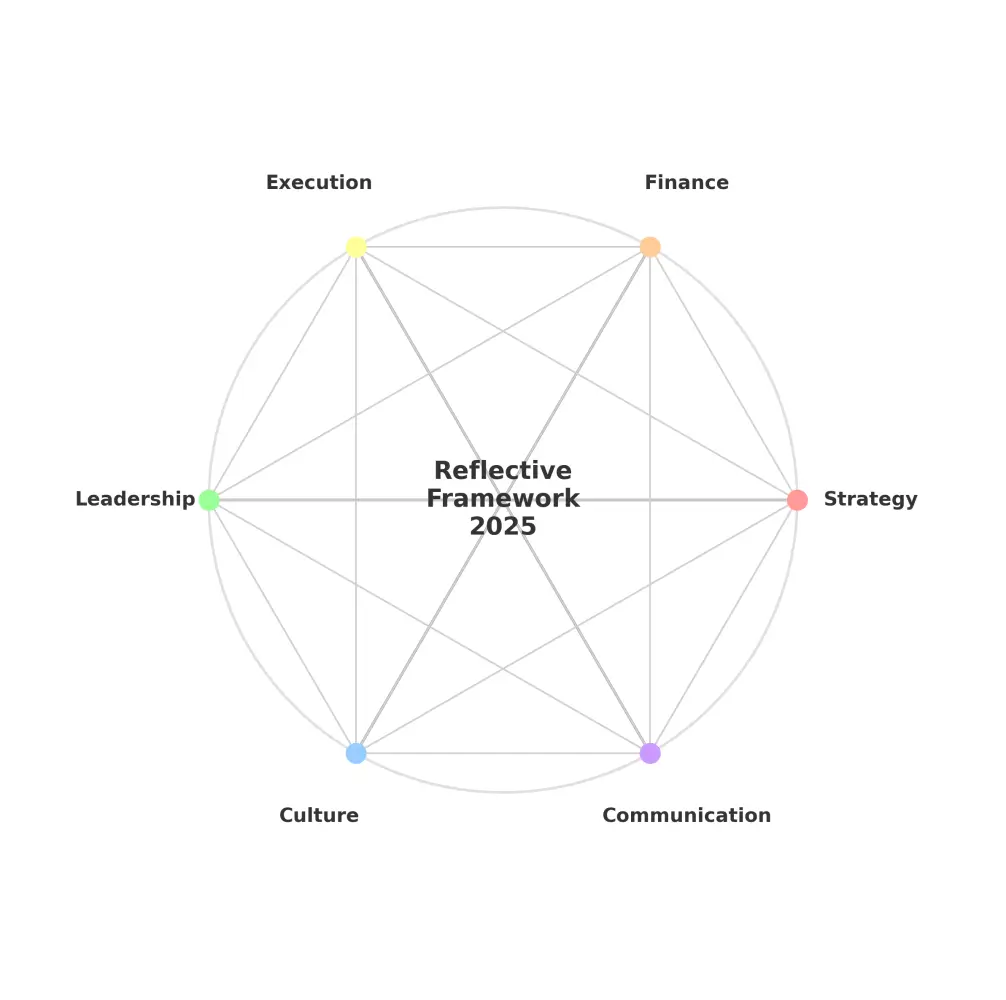Connect
(800) 978-5717
mikael@mikaelmeir.com
33 Helendale Avenue, Suite 508
Toronto, Ontario M4R 0A4
Follow

We do not learn from experience… we learn from reflecting on experience.
~ John Dewey
Behavioural change is hard; And yet, the psychological power of New Year’s reflections can inspire actionable and sustained growth.
Behavioural scientist Katy Milkman, professor at The Wharton School and author of the bestselling book How to Change: The Science of Getting from Where You Are to Where You Want to Be, introduced the concept of the “fresh start effect.” Milkman’s research shows that temporal landmarks—like the start of a new year—can boost motivation toward aspirational behaviours.
How effective is it? Studies show people are 145.3% more likely to commit to their goals at the beginning of a new year compared to a new week (62.9%), month (23.6%), or birthday (2.6%).
As a mid-market CEO coach, I work with behaviour change daily and have helped 100s of CEOs and their teams create positive transformations in their leadership and lives, often resulting in greatly improved enterprise value and personal fulfillment.
In today’s complex and chaotic world, learning and adaptation are critical pillars of success—and these can only happen through intentional reflection. To help you kickstart 2025, I’ve created a simple, practical framework to guide your reflections and actions.

The 6 Interconnected Dimensions for Reflection
Reflect: Is your strategy effective and yielding the proper results? Can you articulate it clearly in one page and verbally in a few sentences?
Action: Use Roger Martin‘s best 5-question Playing to Win framework to clarify: Where do you play? How do you win? What is your winning aspiration? What must-have capabilities are required? What enabling systems support success? For a rich deep dive, read here.
Reflect: Are your revenue and EBITDA growth targets on track? Are you appropriately capitalized to invest in the capabilities and systems necessary to achieve your strategy?
Action: What needs to change? A high-performance sales structure, capital reallocation, restructure expenses, or adjust your capital strategy to better support your goals.
Reflect: Have you mobilized a clear, effective plan for the organization to support your strategy? Are OKRs and KPIs in place to hold your team accountable?
Action: Clarify Objectives and Key Results for 2025 quarterly. If you want to know the difference between OKRs and KPIs, read here.
Reflect: Did you mobilize your team/organization to solve problems, capture opportunities and grow? Do you have the right people on your team who consistently demonstrate skillful decision-making, are accountable and drive progress?
Action: Conduct a talent review. For each team member, assess their capabilities (results) and trust (character, competence, consistency, care) on a scale of 1-10. Create development plans or identify replacements where necessary.
Reflect: Did you create a positive organizational culture by modelling and reinforcing your core values?
Action: Bring your values to life in communications, feedback, performance reviews, hiring, and even terminations. Ensure they guide daily decision-making.
Reflect: Are you communicating transparently and consistently? Does your team understand your vision and strategy?
Action: Schedule quarterly—or better yet, monthly—“All Hands” meetings. Use 10 slides to summarize the State of the Union relative to vision in 20 minutes, followed by an open Q&A.
No CEO is perfect, despite the heavy expectations often placed on them. The best leaders I’ve worked with share an important common quality: a growth mindset. They reflect intentionally and take action to improve continuously.
In 2025, I invite you to carve out time to reflect with your leadership team. Use this framework to strengthen your strategy, culture, and execution readiness.
May 2025 be a year of health, happiness, and growth for you, your family and your organization.
Mikael Meir
Coaching and Development for CEO’s, Teams, and Organizations